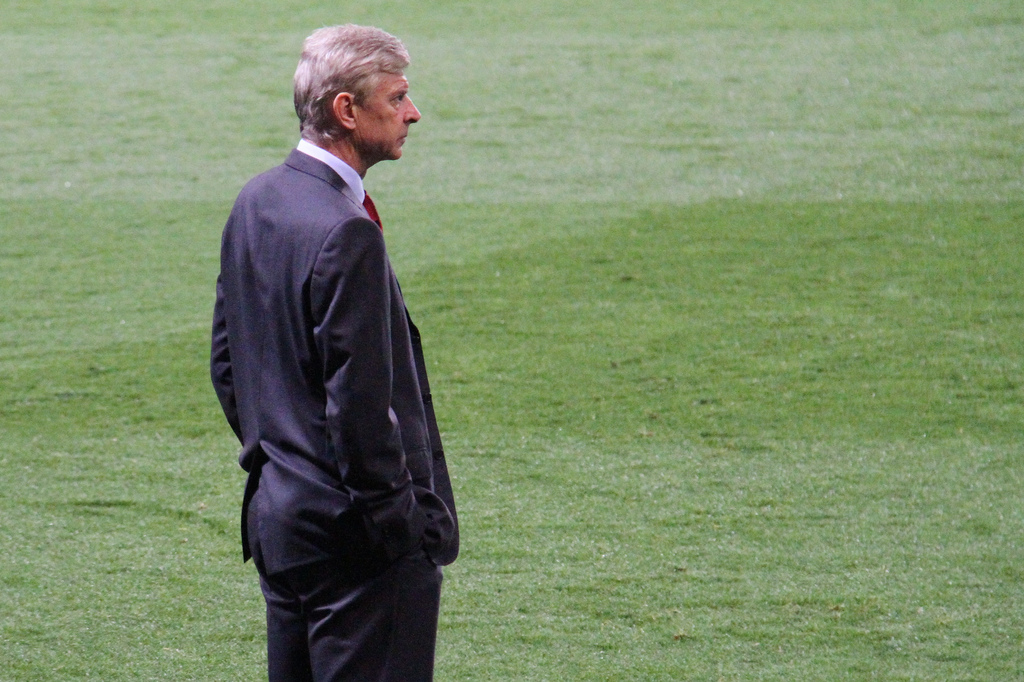Arsene Wenger recently confirmed his position as manager of Arsenal was coming to its bittersweet conclusion. The Frenchman will depart the London club having won three monumental league titles and a blistering figure of 7 FA Cups. But during his 22 years of service, it wasn’t just silverware he had conquered. The 68-year-old laid the foundations for a serial revolution of the English game, steering it through to its modern transition.
When he took over the reigns at Arsenal back in October 1996, following the dismissal of Bruce Rioch almost two months earlier. The Gunners were in a free-fall of sorts, stuck in mid-table mediocrity and hadn’t quite been the same since the impetuous exit of Scotsman George Graham who had led them to European success just a few years previous.
How did Arsene kick-start his revolution?
Wenger was fairly unknown among English fans having come over from then-minnow footballing nation Japan and was expected to bring more disaster and catastrophe to club fortunes. Although his appointment proved to be what’s been lauded the greatest in the club’s 122-year history.
His immediate influence saw the end of the alcoholic climate at Arsenal, installing a much greater demand on working towards building strong, powerful and pacey footballers. The dietary and nutritional boundaries were designed and revitalised by Wenger himself, as he looked to put a more lean and mean look upon his side going forward. This transition in particular, was evident in the explosive manner in which they broke the dominance and superiority of Sir Alex Ferguson’s Manchester United to claim the 1997-98 Premiership crown, thus setting up one of the greatest rivalries to date.
His breakthrough philosophy and detailed consideration regarding sports science and health assurance was studied to great lengths by the other clubs, who seemed in awe of how one small change could have such a big effect.
Perhaps the Frenchman’s most notorious achievement however, is the triumphant 2003-04 unbeaten league season. A spell of spectacular, spine-tingling performances, culminated in what saw Arsenal go 49 games without defeat, something which no other club has managed in Premier League history. This, along with the 2001-02 season’s undefeated mantle away from home, saw Arsenal obtain the emphatic tag of ‘Invincibles’.
Many of his former and current players have attested to Wenger’s persistence to empower young talent and nurture his fledglings whenever possible. This, most comprehensively demonstrated by the Frenchman’s emphasis on a buccaneering brand of football.
When could Wenger have gone?
The subject in-question raises many suggestions from the club’s supporters, with some ranging as far back as 2006.
The end of that season saw Arsene Wenger’s men conjure some electrifying displays to overcome Italian stalwarts Juventus and Spanish giants Real Madrid on their way to the imperfect opportunity of European silverware in Paris. Ultimately however, The Gunners, despite taking the lead, could not hold on despite playing with 10-men for over half the match and went down by a 2-1 scoreline to Barcelona. Although very few and far between, those who were semi-critical of Wenger had begun to question whether moving into the stadium in the following season required someone of greater calibre to take them to the next level.
The 2014 FA cup final success marked Arsene Wenger’s 5th FA Cup triumph as Arsenal manager, and with his contract up just a month later, many felt that it made perfect sense for him to leave on a high such as this, following 9 years without silverware. At the time, the fan-base appeared majorly split over whether the club should part ways, and in the end Wenger was rewarded with a new three-year contract, in the hope that he would put everything in place for the next manager.
Come 2017, Wenger’s contract is up once more, and with another FA Cup triumph sealed just days before, it looked like the perfect way for ‘Le Professeur’ to bow out from English football. This time, only a mini-circa of Arsenal fans tried to make a case for Wenger to stay on, except this time he was actually expected to depart. The man himself (in a recent interview) admitted he had been set to end his reign after the cup final win but the board had no replacement manager in place, not even an ideal candidate, despite many of Wenger’s aggressors initially believing he had selfishness chosen to stay on.
This time however, the board and Wenger say they have parted ways via mutual consent, as the Frenchman still had one more year remaining on his current deal. The change and the fresh instillation of new scouting and board personnel make Arsenal an increasingly exciting project in prospect for anyone remotely interested in the game.
In terms of where Arsene Wenger goes next, it seems unlikely that he’ll opt to retire just yet. With a return to AS Monaco or elsewhere in France/England on the cards, it would have to be something to cater a much more short-term build or transition, although fellow English clubs such as Everton can’t help but cry out for someone of his calibre. A stint in international management, although not really considered, would seem more appropriate if Wenger were to maintain his Arsenal legacy without suffering any near or miss conflictions through other clubs.
All in all though, he has been a tremendous servant to Arsenal Football club these past 22 years. He has brought record-breaking league successes, numerous cup triumphs and guiding the club through it’s most difficult period of financial constraint (2006-2011), following the construction and completion of the new Emirates Stadium. Not to forget, there is still one more piece of silverware up for grabs at the end of this campaign, in the Europa League, a potential first piece of European glory would give ‘Mr. Arsenal’ a truly devoted send-off.

